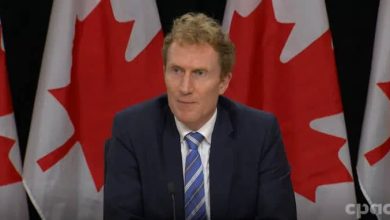

Canada’s inflation rate fell from 4% in August to 3.8% in September. The figure released by Statistics Canada on Tuesday was lower than economists expected. The information office said the decline in the cost of living was “widespread” and was driven by declines in prices of many goods and services, including travel, frozen consumer durables and some foods. On a monthly basis, the cost of living decreased by 0.1% in September. This is the first time this has happened since November last year. Gasoline prices fell 1.3 percent this month but are still up 7.5 percent over the last 12 months, so oil prices are one of the most important factors affecting interest rates each year. . If gasoline is not included in the inflation data, the inflation rate will be 3.7 percent. This rate decreased compared to 4.1% last month. Some Simple Things in Food Food is increasing, but at a slower pace.
The cost of collecting shopping carts has increased by 5.8% compared to this time last year. That’s down 11% from a year ago, as price increases for many foods have slowed and prices for things like bacon, bananas, fruit and some cheeses have fallen. Article Monthly increase in September 2022, when food prices rise at the fastest rate in 41 years, breaking the 12-month hiatus and causing a decline in the index. Section Currency Bank Monex said weak economic data would be good news for the Bank of Canada, which is trying to decide whether to raise interest rates to cool things down. “Today’s report is perhaps the best news the Bank of Canada has received in months,” he said, noting that everything from food to energy to commodities and the main budget fell this month, while prices for services remained stable. The Bank of Canada seems optimistic about the economy today at its meeting next week and is keeping interest rates steady at five percent.
CHECK OUT THIS POST:Choosing the Perfect Career, Online and Offline
Murray Chao said he expects economic value to continue to decline based on evidence that consumers are cutting back on spending. Spending on things like entertainment and food is lower, they also spend less on certain things and say they have “stopped spending money to protect themselves”. Cesar Ramirez Of course. Like many Canadians, the Toronto man took out a new loan during the global pandemic and quickly ran into trouble when interest rates started rising this year. “I started managing a lot of debt with very high interest rates,” he told CBC News in an interview. A sudden rent payment and his mother’s unexpected serious medical condition pushed him to the breaking point. Faced with more than $20,000 in debt and an interest rate of almost 30 percent, contacted Toronto-based debt-sharing service Parachute, which set up a payment plan that would depreciate its value by 2025.
He has reduced his budget to the minimum and will not spend too much money on unnecessary things or services for a while, but he is happy to finally have peace from his constant worries about inflation and interest rates. “I was so nervous, so nervous, I couldn’t sleep until I said, ‘Okay, I can control it,'” he said. “Maybe things aren’t going as fast as I want, but still… I can make it.”






